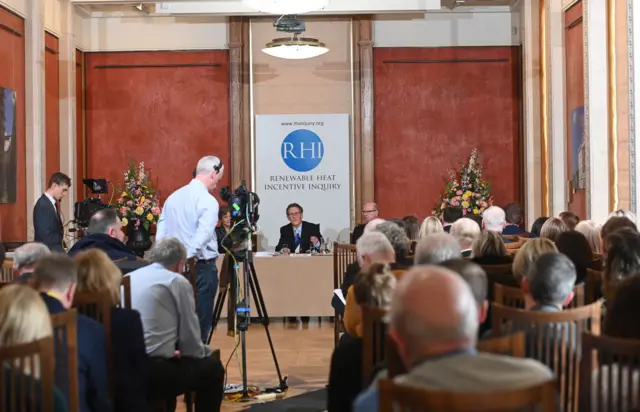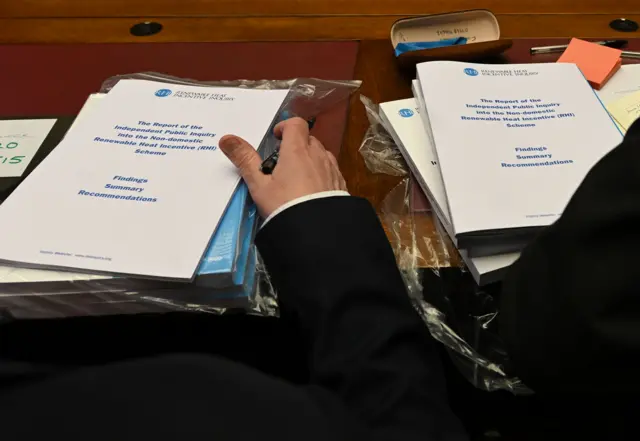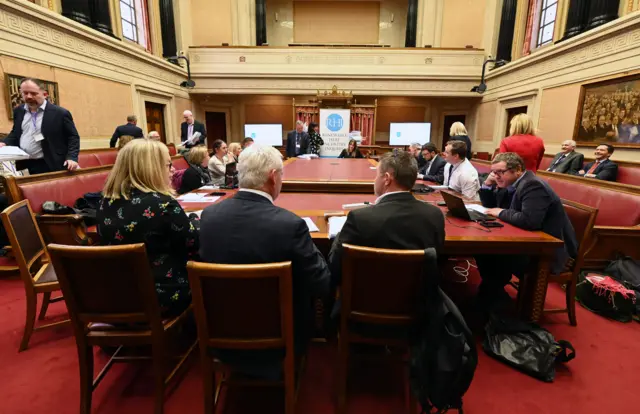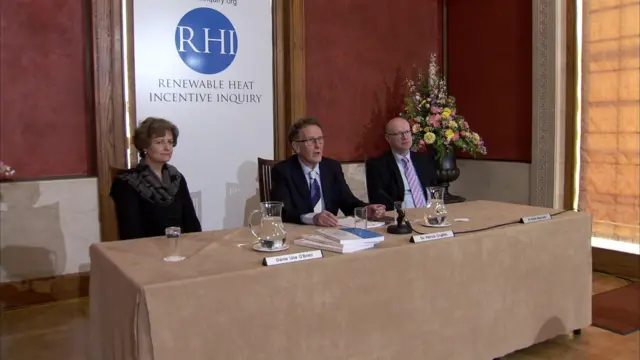Stormont's day of reckoning overshadowed by coronaviruspublished at 15:22 GMT 13 March 2020
 Mark Devenport
Mark Devenport
BBC News NI Political Editor
Friday 13th. Just before the ides of March.
The omens were all there for Sir Patrick Coghlin's inquiry into the Renewable Heat Incentive scandal to be a day of reckoning for Stormont in general, and Northern Ireland's First Minister Arlene Foster in particular.
But when it came to it, the report into the affair which brought the power-sharing executive down in 2017 seemed anti-climactic.



